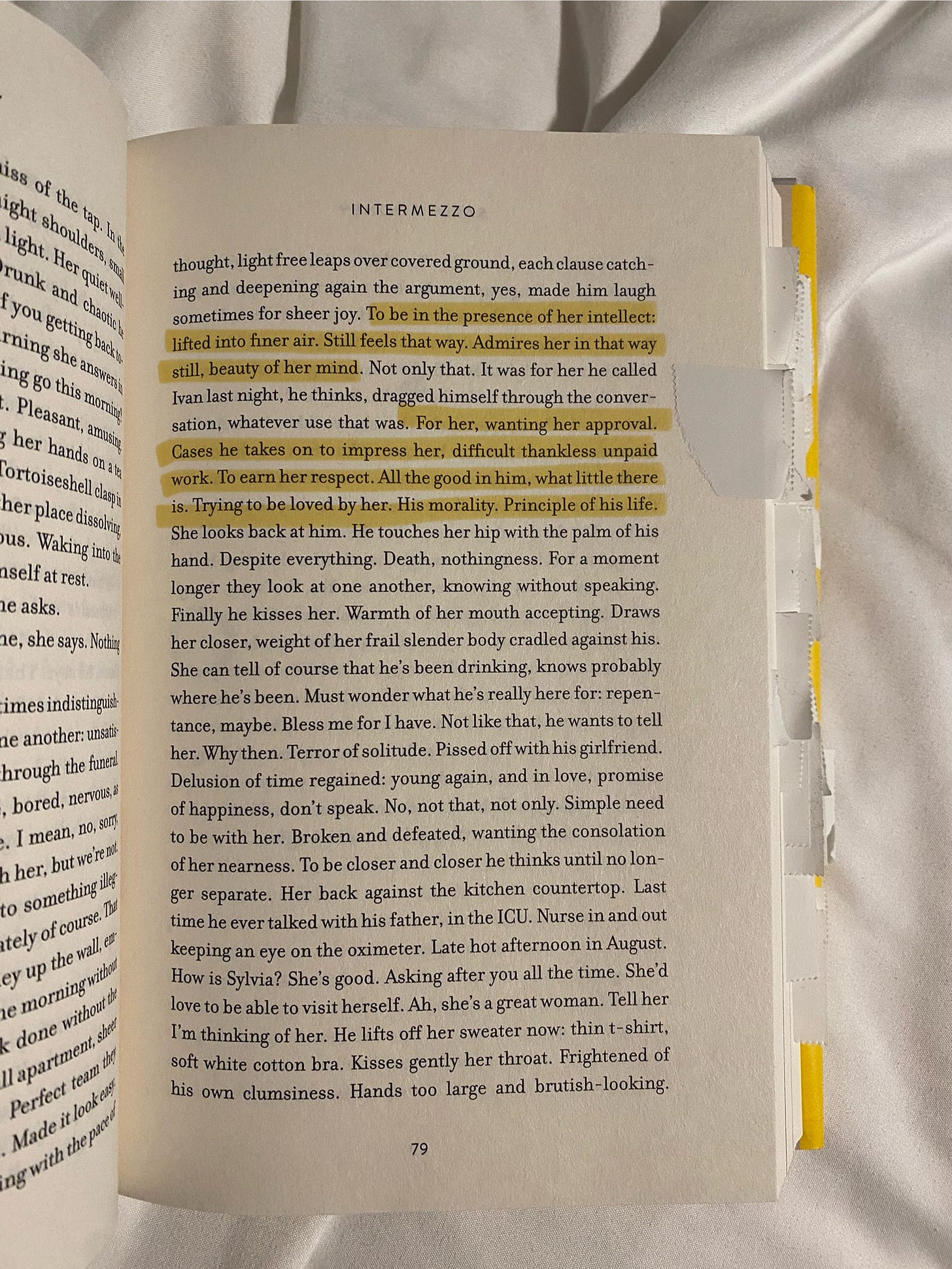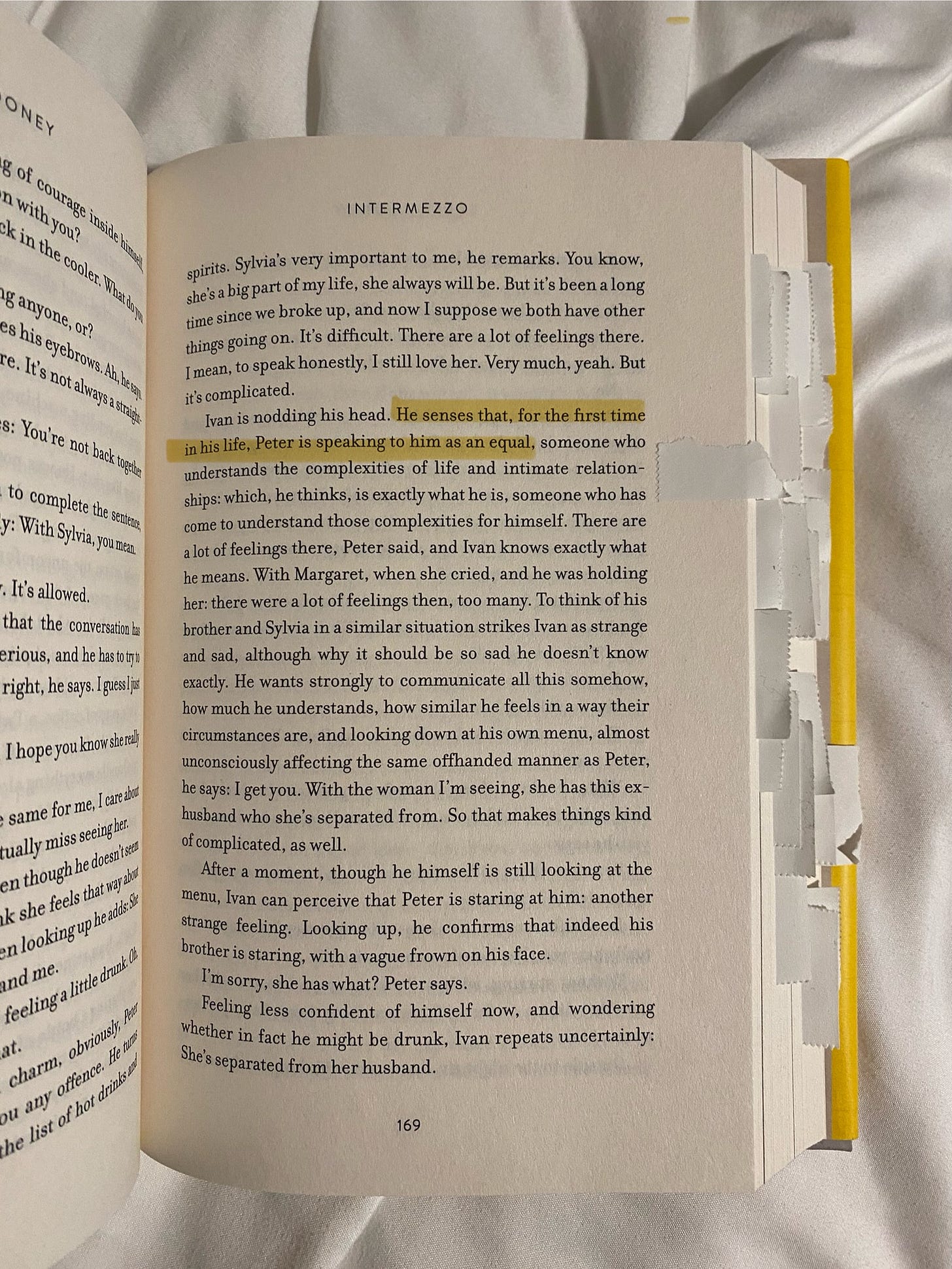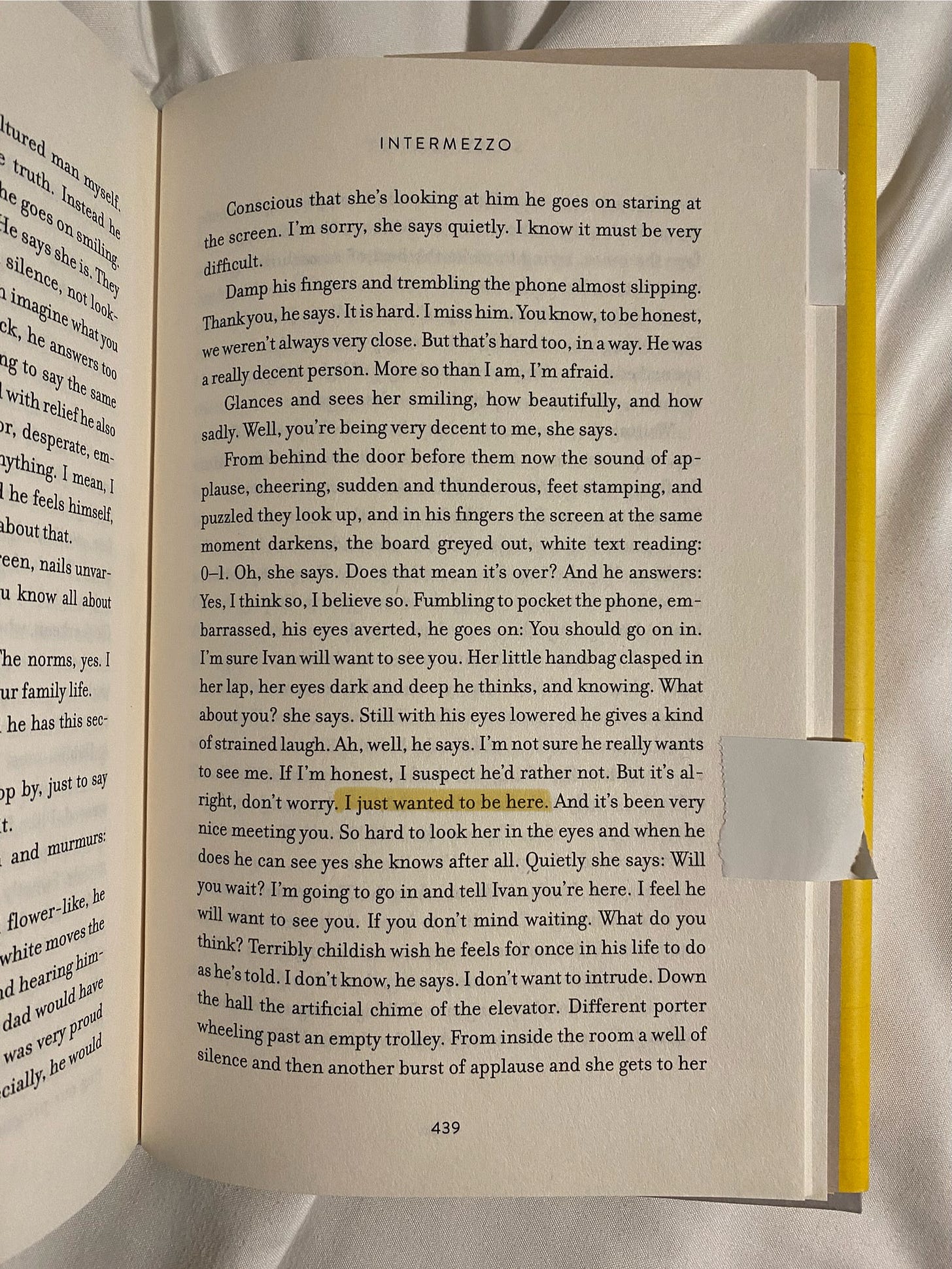After so much anticipation since the book was announced, I genuinely cannot believe that I am already writing a review for Intermezzo just a week after its release.
I want to preface this by saying I always feel nervous about change. Whether it be a new internship or job, school term, or even a new Taylor Swift album – I get sort of paralyzed and upset because I’m scared I won’t like it. That is exactly how I felt when I read the first chapter of Intermezzo and was (what could only be described as) body slammed by Peter’s short and never-ending thoughts. However, I persisted and am stronger for it.
Partially because of this new writing style, I felt Intermezzo is sufficiently different from Rooney’s other books. Not only do we have these staccato (see what I did there) and disjointed sentences, but thematically the book is quite different. For one, we have the looming presence of the father’s death. While there have always been backstories that we become privy to in her books (I’m namely thinking of Alice and her mental breakdown as a defining pre-book event), we rarely have the characters interacting so directly with that event. Also, this might be just me, but with Ivan, we really get to see this sort of individual growth (yes, even in a Sally Rooney book), through his chess, which I don’t think we’ve seen before as we tend to focus on their relationships.
Now, here are some things that I really loved.
The characterizations of Sylvia and Naomi. Sylvia gets all of these soft and warm descriptions: her cashmere and lambswool sweaters, big coats, and delicate features. It’s almost like she’s bathed in this golden glow, especially when they are in her apartment or office. Naomi, on the other hand, is like fluorescent hospital lighting. All the lights are on to see her scrapped knees, chipped nails, and leather jacket. The two of them are written so perfectly as each other’s opposite. Yet, I think that is the whole point – that we are supposed to see their contrast but then reconcile our feelings for them in the way that Peter must. Though that’s not hard, each character is sufficiently humanized to make us feel for them (even though I was lowkey rooting for Sylvia – though I’m not at all upset at how it all shakes out (or doesn’t shake out, nothing really gets resolved in these books do they?)).
The tension between Peter and Ivan with respect to their older-younger sibling dynamic. As the younger sister with a sizeable age gap (eight years) between myself and my older brother, I FELT Ivan’s point of view at times. Though my brother and I have a decidedly better relationship than these two, there is a natural dynamic between siblings as your direct comparison, no matter how different your circumstances may be. Feeling patronized and disrespected, I think, are par for the course, and those feelings become increasingly frustrating when you are a full-functioning adult. However, that is what I think makes the reconciliation between the two so important in the end. This relationship that we have, without asking for it and since birth, means so much and requires so little. We say the most hurtful things and think the cruelest thoughts but at the end of the day, I think we all just want to see our big brother (or whoever that person is for you) at our chess tournament. And to comment on the other side, reading Peter’s side made me feel so sympathetic towards that older sibling role. Toeing the line between sibling and parent and meaning well but struggling to bridge the gap. Just so well done.
Speaking of the end, absolutely beautiful. Some of my favorite writing in the book. The rising (crescendoing) relief and excitement building in Peter for the first time that things will be okay, despite everything. Like let the man run off into the sunset smiling.
While there wasn’t anything I particularly disliked about the book, I feel like there are things that I let slide because the book feels so real, I’m just like, “Well, that’s life for you, I guess.” For example, I felt the characterization of Christine, the mother, is not like a one-eighty but a random one-forty after the physical fight between Peter and Ivan. They both seemed quite dismissive, cold, and angry at her but suddenly were quite receptive to her call at that moment and moving forward. And to that, I can kind of say “Yeah, well they needed that figure in that moment and so naturally they are more receptive,” but I don’t know it felt a bit abrupt. Or Naomi getting kicked out of her apartment, I understand what the whole situation is trying to say, but it felt like such a big point for a moment but then became a bit of a way to move the plot along and get her to shack up with Peter and then meet Ivan.
Now, with that all being said Intermezzo was great. It gave everything you would expect Sally Rooney to give and did so in a new style that I think added to creating a distinct feeling of the book. It’s somewhat more plot-driven (as much as you can get in a Rooney novel, I think) and combines some of the best aspects of her prior work. I will be rereading it soon enough.
ps. Simon Costigan, you will always be famous.






